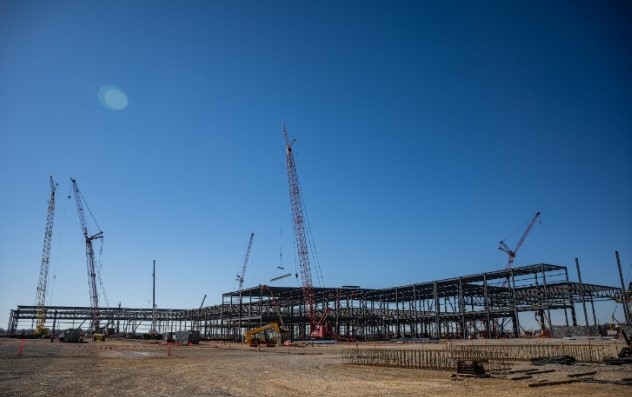The U.S. Department of Energy announced that it will be giving Ford and battery producer SK On a $9.2 billion loan to build electric vehicle factories.
The loan more specifically goes to a joint venture between Ford and the South Korean battery giant, which they're calling Blue SK Oval. The money will be used to build three separate factories, and it will substantially increase the American car manufacturer's capacity for building vehicles that do not rely on gas.
"Not since the advent of the auto industry 100 years ago have we seen an investment like that," Gary Silberg, global automotive sector leader at the accounting firm KPMG, told Bloomberg.

Ford's recent dedication to ramping up EV production includes plans to make clean energy vehicles more affordable. That's an important development as, so far, high costs are a common reason people have not been making the switch to EVs.
"It's going to help make great EVs available to more customers while powering thousands of good paying jobs and American manufacturing," Dave Webb, Ford's treasurer, said in a statement, according to The Verge.
Between this joint venture and its own projects, Ford plans to produce two million EVs annually by 2026.
The aid from the DOE couldn't have come at a better time, as some experts predict that we'll need 10 million EVs on U.S. roads by 2025 to evade the worst effects of our planet's overheating.
Currently, dirty energy transportation such as internal-combustion cars and buses are responsible for nearly 30% of polluting gases that are contributing to Earth's rising temperatures. So efforts to speed up the production of vehicles that do not release these toxic gases are important to slowing our planet's overheating.
Moving toward a world with fewer gas-reliant vehicles benefits the planet in other ways, too. It means less need for toxic liquids like motor oil, which take years to degrade and can harm wildlife and contaminate waterways. Fewer gas-reliant vehicles can also improve air quality, especially in cities.
Join our free newsletter for cool news and actionable info that makes it easy to help yourself while helping the planet.









